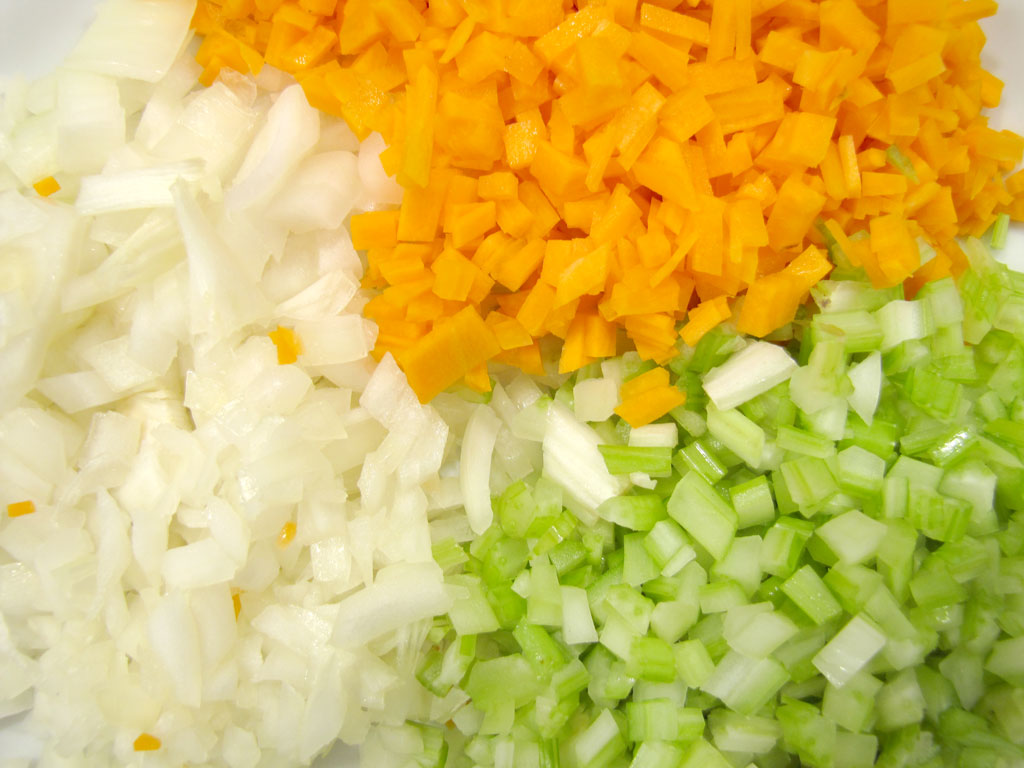Knife handling

First you need to make sure that your knife is sharp. Use a sharpening steel and hold the knife in a 22 degree angle to the steel. You can keep your knife sharp by stroking it along the steel 3-4 times every time you use the knife.
When you do your cutting it is important to do it uniformly. Not so much because it is the prettiest, but because the food will cook uniformly too.
1. Peeling and prep cutting
Ensure that the vegetable is nice and clean.
Then roughly cut it up in a size and shape that you can physically handle with your knife. The ideal is to cut them in 4 inch "boxes". That is about the max that you can handle with a knife.
It is also about the largest piece of vegetable strip that you can have in your mouth.
2. Make a plane bottom as a base
If you are cutting round vegetables you should cut a slice of them and use the flat edge as a base. That way they stand solidly on the table while cutting them.
3. Slicing
Cut the vegetables into slices. The thickness is dependent of both the shape of the vegatable itself and what you are cooking. If you are making potato dices for fried potatoes the slices should be about 1-1½ cm (½ inch). If you are cutting ginger to spice up asian food, the slices should be about 1-2 mm (1/10 inch).
You just stop at this point if you need to cook it as slices.
4. Strips (julienne)
If you need strips instead of slices, you stack the slices like a deck of card across a table. Then you just cut strips from one end.
The strips should be as thick as the slices. A classic julienne cut has about the size of a matchstick.
You often use strips in cooking. Then you just stop cutting here.
5. Dices (brunoise)
This is as small as the vegetable pieces get.
Collect the strips in a bundle. Then cut those into cubes that are the same size as the strips.
As mentioned, the best result is when the dices are completely square.
